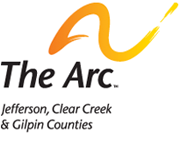For more than 50 years, Colorado chapters of The Arc have advocated for the rights of people with intellectual and developmental disabilities (I/DD) to live independently, exercise choice and control over their lives and contribute to their communities by being fully included in educational, economic, social, spiritual, and cultural endeavors. Below is the 2014 public policy agenda for Colorado chapters of The Arc:
Funding and policy changes to strengthen the Colorado Medicaid State Plan, state programs, and Home and Community Based Services (HCBS) Medicaid waivers for people with disabilities to include support for:
- Adding personal care, homemaker, health maintenance services, home health benefits and behavioral/mental health services and habilitative supports to the Colorado Medicaid state plan for those who meet the level of care requirement;
- Updating of regulatory and licensure rules/regulations that prevent people with I/DD from accessing support for medically necessary procedures in typical family and community environments;
- Options for self-direction and individual control of budgets in HCBS Medicaid waivers as well as Medicaid state plan benefits;
- Full funding of community based services for all people with I/DD who meet eligibility requirements;
- Increased funding for family support including respite and other services needed to maintain family stability;
- Support for individuals transitioning from school based services and supports available through Early Periodic Screening, Diagnosis and Treatment options to access necessary medical services in the community;
- Crisis prevention/intervention for people with I/DD who also experience behavioral and/or mental health crises to ensure appropriate cross-system rapid response, evaluation, medication management, therapeutic respite and follow up services.
Colorado students with disabilities have a Constitutional right to free, appropriate educational opportunities with accompanying supports in the least restrictive environment. Colorado must provide for:
- Quick enrollment of all eligible children from birth through age three in Early Intervention services;
- Special education services provided in the least restrictive setting by qualified teachers, staff and therapists for all eligible students including para-professional support, alternative school placement, and related supports including transportation;
- Adequate medical and nursing services to support students with complex needs;
- Meaningful transition services for students with disabilities including preparation for continuing education, work-based experiences and preparation for independent living.
Coloradoans with disabilities prefer to live, learn, and work in their community of choice. State systems must be simplified and strengthened to ensure ready access to community living including:
- Medicaid waiver simplification to create a single HCBS waiver for adults with I/DD with access to services and supports when and where needed throughout their lifetimes;
- Continued expansion of Medicaid buy-in programs to allow working adults with disabilities and families of children with disabilities to obtain health care coverage;
- Community based out-of-home placements through County Social Service departments for children with I/DD in the rare cases when such placement is required;
- Person centered assessment, service planning and delivery for all Coloradoans eligible for long term services and supports;
- Access to information and communication technology to improve independence, productivity and quality of life;
- Greater emphasis on supported employment options for adults with I/DD.
Protection of civil rights for people with disabilities including:
- School discipline policies that acknowledge behavioral issues related to disability and elimination of restraint and seclusion of students with disabilities;
- Fair treatment of juveniles with disabilities in the criminal justice system to avoid incarceration and employment of restorative justice programs for all citizens;
- Guardianship policies and practices that respect the right of people with disabilities to manage their own affairs with informal assistance and guidance from family, friends, and others. If guardianship is essential, it should be used only to the extent necessary, with a presumption in favor of limited rather than full guardianship.
- Access to informed end-of-life care for persons with developmental disabilities through greater utilization of hospice and palliative care services.


